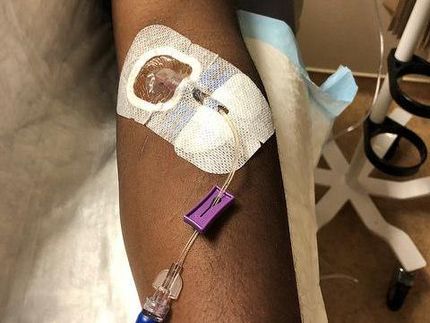Biovitrum and Symphogen Report Positive Clinical Results in Novel Rh-immunization Prevention Project
Biovitrum AB and Symphogen A/S have completed the first part of a clinical proof of mechanism study of the recombinant human polyclonal antibody product Sym001 for future prevention of Hemolytic Disease of the Newborn (HDN) that can occur in RhD-negative mothers carrying a RhD-positive fetus. This can lead to an immune reaction causing destruction of the red blood cells in the newborn, which may give rise to severe anemia, jaundice, and even cause heart failure and fatality.
This part of the first clinical study investigated the ability of Sym001 to clear RhD-positive red blood cells given intravenously to 24 RhD-negative healthy males. Positive control was the plasma-derived product Rhophylac®, given to 12 subjects. The preliminary results demonstrate that the recombinant human polyclonal antibody product is able to clear RhD-positive blood cells at five days after dosing in a dose dependent manner.
Biovitrum and Symphogen are now planning for the next step of the clinical programme which should lead to a decision to initiate phase III studies in the intended label population, namely Rh-negative mothers carrying an Rh-positive fetus
"Sym001 is the first ever recombinant human polyclonal antibody product to have entered human clinical trials and this red blood cell challenge study is an important step in the further development of Sym001", said Kirsten Drejer, CEO of Symphogen. "Symphogen's antibody technology platform offers the opportunity to generate compositions of recombinant human polyclonal antibodies as well as single monoclonal antibodies which opens an exciting avenue for development of antibody therapeutics addressing unmet medical needs."
Other news from the department research and development

Get the life science industry in your inbox
By submitting this form you agree that LUMITOS AG will send you the newsletter(s) selected above by email. Your data will not be passed on to third parties. Your data will be stored and processed in accordance with our data protection regulations. LUMITOS may contact you by email for the purpose of advertising or market and opinion surveys. You can revoke your consent at any time without giving reasons to LUMITOS AG, Ernst-Augustin-Str. 2, 12489 Berlin, Germany or by e-mail at revoke@lumitos.com with effect for the future. In addition, each email contains a link to unsubscribe from the corresponding newsletter.
More news from our other portals
See the theme worlds for related content
Topic world Antibodies
Antibodies are specialized molecules of our immune system that can specifically recognize and neutralize pathogens or foreign substances. Antibody research in biotech and pharma has recognized this natural defense potential and is working intensively to make it therapeutically useful. From monoclonal antibodies used against cancer or autoimmune diseases to antibody-drug conjugates that specifically transport drugs to disease cells - the possibilities are enormous

Topic world Antibodies
Antibodies are specialized molecules of our immune system that can specifically recognize and neutralize pathogens or foreign substances. Antibody research in biotech and pharma has recognized this natural defense potential and is working intensively to make it therapeutically useful. From monoclonal antibodies used against cancer or autoimmune diseases to antibody-drug conjugates that specifically transport drugs to disease cells - the possibilities are enormous
























































